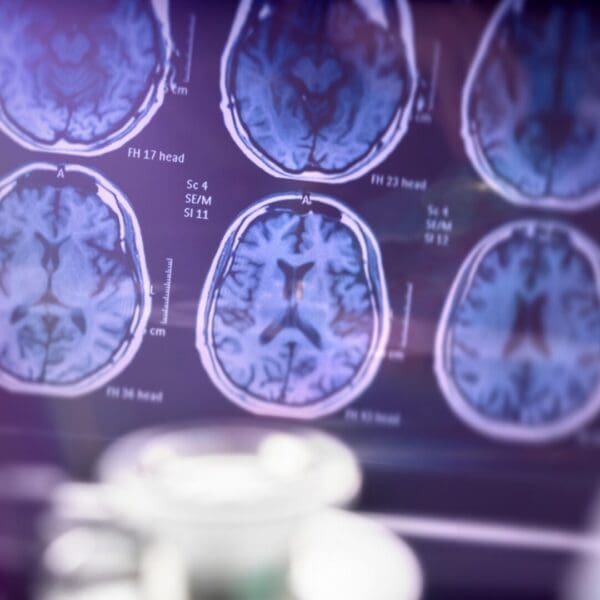Deep in the soil of Easter Island, scientists discovered a substance that would lead to one of the most important breakthroughs in understanding cellular function and aging. This substance, rapamycin, helped identify mTOR (mechanistic/mammalian target of rapamycin), a protein that serves as a master regulator of cell growth, metabolism, and longevity.
Think of mTOR as your body’s central control system, constantly sensing and responding to your environment. It integrates signals about nutrient availability, energy status, and stress levels to coordinate cellular responses throughout your body.
The Two Faces of mTOR
mTOR doesn’t work alone. It forms two distinct protein complexes with very different functions:
- mTORC1: Acts as your body’s growth and metabolism manager. When activated, it promotes protein synthesis, cell growth, and energy production while reducing cellular cleanup processes.
- mTORC2: Focuses more on cell structure and communication, influencing cell shape, movement, and how cells respond to insulin.
Like many biological systems, mTOR requires balance. Both too much and too little activity can lead to health problems:
- Excessive mTOR activation has been linked to accelerated aging, metabolic disorders, and increased cancer risk.
- Insufficient mTOR activity can impair muscle growth, immune function, and healing.
The goal is not to completely suppress or continuously activate mTOR but rather to find the optimal function of this pathway.
What Influences mTOR Activity in Your Daily Life?
Several everyday factors directly impact how active your mTOR pathway is:
- Nutrition: Your diet plays a crucial role in regulating mTOR. Protein intake, particularly those rich in the amino acid leucine (meat, dairy, eggs, legumes), strongly activates mTOR. Similarly, carbohydrates stimulate mTOR through insulin signaling. On the other hand, fasting and caloric restriction naturally reduce mTOR activity, triggering cellular cleanup and repair mechanisms.
- Exercise: Different types of physical activity affect mTOR in various ways. Resistance training activates mTOR in skeletal muscle, promoting growth and strength gains. Endurance exercise has more complex effects, with initial suppression during activity followed by activation during recovery periods.
- Other Lifestyle Factors: Your daily habits create a complex web of influence on mTOR signaling. Quality sleep helps maintain proper mTOR rhythms, while chronic stress can dysregulate this pathway. Alcohol consumption temporarily inhibits mTOR activity.
Rapamycin: The Anti-Aging Connection
Research on rapamycin has shown remarkable results in extending lifespan across multiple species. In animal studies, rapamycin has been shown to:
- Improve cardiovascular function
- Enhance immune response in older individuals
- Support brain health and cognitive function
- Reduce cancer risk
However, rapamycin comes with serious potential side effects and should only be used under careful medical supervision.
Why mTOR Management Matters Today
Our ancestors experienced natural cycles of feast and famine that regulated mTOR activity. Today’s constant food availability creates an evolutionary mismatch:
- Historical Pattern: Periods of high nutrient availability (mTOR activation) followed by periods of scarcity (mTOR inhibition)
- Modern Pattern: Continuous nutrient abundance leading to chronic mTOR activation
This mismatch may contribute to many modern diseases and accelerated aging. Research shows that organisms from yeast to mammals live longer when they cycle between periods of mTOR activation and inhibition.
Finding Balance: Supporting Healthy mTOR Function
Rather than viewing mTOR as something to fear or constantly suppress, the goal should be supporting its natural balance:
- Practice time-restricted eating or intermittent fasting to create natural periods of lower mTOR activity
- Consume moderate protein intake (0.8-1.2g per kg of body weight for most people)
- Incorporate regular exercise, including both strength and endurance training
- Prioritize sleep and stress management
- Consider occasional longer fasts under appropriate supervision
mTOR isn’t inherently good or bad–it’s an essential pathway that needs appropriate regulation. By understanding how everyday choices influence this system, you can work with your body’s natural processes rather than against them. The key to harnessing mTOR for optimal health and longevity isn’t about constant suppression, but rather creating the right rhythm of activation and inhibition that mimics our evolutionary heritage.
The bottom line is that modalities and compounds that block mTOR are typically associated with anti-aging and longevity.
-Dr. P














